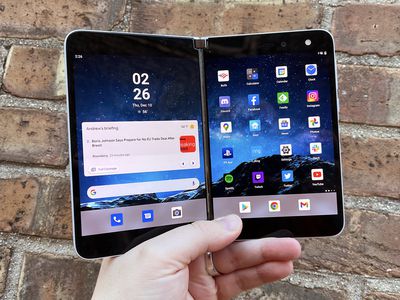
Exposed: How Meta Misleads Gamers with Quest VR Marketing Tactics

Exposed: How Meta Misleads Gamers with Quest VR Marketing Tactics
The Meta Quest line of VR headsets are great for virtual reality games, but in response to the Apple Vision Pro, Meta has been trying to position them as more general-purpose productivity devices. Unfortunately, the company is resorting to flat-out lies in advertising to make that argument.
Meta has published a new advertisement for the Quest 3 headset, showing a person in a car garage multitasking with multiple windows. The person is watching a YouTube video in one window and talking in a WhatsApp conversation in another window. There are a few other windows floating around the garage room.
Here’s the problem: you can’t do that on a Quest headset. The current software is limited to three simultaneous applications, and they are displayed in one shared side-by-side view . You can adjust the size and positioning of each window, but they are locked together in the same view.
The Apple Vision Pro does allow you to open multiple apps and place them anywhere in a room (or even across multiple rooms), but not the Quest. It’s common for advertisements to stretch the truth a little bit, but the entire point of that advertisement is to show how you can place and move around app windows anywhere with a Quest, when that is not true.
Meta published another new advertisement for the Quest 3, showing a person building a baby crib with the instructions open in a floating window. That ad also isn’t entirely accurate: at one point, the person does a zoom gesture to bring one of the windows closer, which isn’t currently available either. The rest of the demo shows three applications next to each other, though, which is far more accurate than the first commercial.
The advertisements might simply be an early look at the Quest’s upcoming interface revamp , but even if that’s the case, it’s giving potential buyers the wrong idea about what the headsets can do today. This isn’t even the first time Meta has published a fake advertisement for Quest headsets—the company uploaded and then deleted a video of someone pretending to use a checklist , but the checklist was a screenshot of the Google Keep app.
We have reached out to Meta for comment, and we will update this article when (or if) we hear back.
Also read:
- [New] In 2024, Rise of the Alternative Top 3 Video Sharing Websites
- [New] Streamlining the Process of Updating TikTok Profile Age
- [New] Unleashing Vibrance Grading Secrets in PS
- [Updated] Best Mobile Film & Picture Capture Tools for iPhones & Androids
- [Updated] Upgrade to Professionalism The Most Advanced 9 Filter Techniques
- 2024 Approved The Ultimate Guide to Personalizing Your Android Device Sound System
- 2024 Approved Unveiling The Future Adopting macOS 11 Big Sur for Growth
- Complete Overview ScreenFlow v4 for macOS for 2024
- Essential Top 7 Floodproof Video Cameras Guide for 2024
- Gmail Not Working on Vivo V30 Lite 5G 7 Common Problems & Fixes | Dr.fone
- In 2024, Streamline Your Twitter Videos with Pro Convertors
- Official Epson Stylus Artisan 1430 Printer Drivers for Windows Operating Systems (Windows 11, 10 & 8) – Free Download
- Retrospectively Refunding: A Guide to Reclaiming Cash on Steam
- Streamline Your Workflow Must-Know Win 10 Tactics for 2024
- The Drone Enthusiast's Compendium of Must-Haves for 2024
- Transcribe Speaking to Writing Free of Charge for 2024
- Title: Exposed: How Meta Misleads Gamers with Quest VR Marketing Tactics
- Author: Mark
- Created at : 2024-12-26 16:49:26
- Updated at : 2025-01-02 17:40:51
- Link: https://some-guidance.techidaily.com/exposed-how-meta-misleads-gamers-with-quest-vr-marketing-tactics/
- License: This work is licensed under CC BY-NC-SA 4.0.